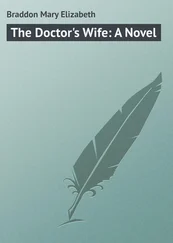Mary Braddon - Mohawks - A Novel. Volume 1 of 3
Здесь есть возможность читать онлайн «Mary Braddon - Mohawks - A Novel. Volume 1 of 3» — ознакомительный отрывок электронной книги совершенно бесплатно, а после прочтения отрывка купить полную версию. В некоторых случаях можно слушать аудио, скачать через торрент в формате fb2 и присутствует краткое содержание. Жанр: foreign_prose, на английском языке. Описание произведения, (предисловие) а так же отзывы посетителей доступны на портале библиотеки ЛибКат.
- Название:Mohawks: A Novel. Volume 1 of 3
- Автор:
- Жанр:
- Год:неизвестен
- ISBN:нет данных
- Рейтинг книги:5 / 5. Голосов: 1
-
Избранное:Добавить в избранное
- Отзывы:
-
Ваша оценка:
- 100
- 1
- 2
- 3
- 4
- 5
Mohawks: A Novel. Volume 1 of 3: краткое содержание, описание и аннотация
Предлагаем к чтению аннотацию, описание, краткое содержание или предисловие (зависит от того, что написал сам автор книги «Mohawks: A Novel. Volume 1 of 3»). Если вы не нашли необходимую информацию о книге — напишите в комментариях, мы постараемся отыскать её.
Mohawks: A Novel. Volume 1 of 3 — читать онлайн ознакомительный отрывок
Ниже представлен текст книги, разбитый по страницам. Система сохранения места последней прочитанной страницы, позволяет с удобством читать онлайн бесплатно книгу «Mohawks: A Novel. Volume 1 of 3», без необходимости каждый раз заново искать на чём Вы остановились. Поставьте закладку, и сможете в любой момент перейти на страницу, на которой закончили чтение.
Интервал:
Закладка:
"We shall see the effect of this new-fangled treatment," he said, looking at the prescription. "If Squire Bosworth were a man of society, he would not have committed such a breach of manners as to post off to town and bring down a strange doctor without conferring with me."
"He wanted to save his child," said Barbara.
"That is what we all want, madam; but it might just as well be done in accordance with professional etiquette," replied the doctor.
Although huffed by the Squire's conduct, he yet deigned to follow out Dr. Denbigh's treatment: and by a strict adherence to those instructions Rena began visibly to improve, and when the physician come to Fairmile on the third day he was able to give a favourable verdict.
"Your daughter is decidedly better," he said. "I am very sorry we lost her little companion. She was a pretty child – more robust than this one, and, as I thought, in less danger; but these little lives hang by the flimsiest thread."
The child who had been called Belinda was buried in the same churchyard where her unknown father lay in his pauper's grave; but the Squire showed himself unwontedly liberal, insomuch that he ordered a headstone to mark the child's resting-place – a stone upon which this inscription was cut at his own particular order:
Irene recovered, but her recovery was of the slowest. The loss of her playfellow retarded her convalescence. She sorrowed with a deeper sorrow than children are wont to feel at the loss of those they love. Fever and delirium hung upon her for nearly a month after her child-friend had been carried to Flamestead churchyard. Dr. Denbigh declared the case one of the most interesting and the most difficult that had come within his experience. There was a period in the history of the case when he began to fear for the little patient's mind; and even after convalescence her memory was found to be weakened, and there were moments of actual hallucination.
"She owes her life, under Providence, to Mrs. Bridget's excellent nursing," said Dr. Denbigh – commendation which brought sudden tears to Bridget's eyes. This praise was thoroughly deserved, for the nurse had devoted herself to her duties with untiring devotion, and had scarcely enjoyed a night's sleep during the four weary weeks of uncertainty that followed Linda's funeral. She grieved for the child that was gone with a deeper sorrow than might have been anticipated, seeing that her own particular charge, the child she had nursed from its birth, had been given back to her as if from the very jaws of death. She did her duty to the survivor with unstinted devotion; but it would have almost seemed that her heart was in the grave of that child which had been taken.
Squire Bosworth's conduct in many of the relations of life changed in a marked degree after this period of peril, in which his child's life, and as it were his own fate, had trembled in the balance. He became a more affectionate father, a better landlord, and a kinder master. He still appeared on 'Change every week, still speculated and laboured for the increase of his vast fortune, still hoarded and calculated and hung fondly over his piles of debentures and securities, mortgages and New River shares. The very bent and habit of his mind was too deeply engrained in him to be changed at forty years of age; but he became less miserly in many things, and he placed his establishment upon a more liberal footing, although retaining Mrs. Layburne at the head of affairs. For his daughter he spared nothing. He gave her toys, lap-dogs, and a pony, and never allowed a day to pass while he was at Fairmile without spending some portion of it in the little girl's society. For the rest he was as much a recluse as ever, shunning all his neighbours, and never sharing in any of those field-sports which are, and ever have been, the chief bond of union between country gentlemen.
CHAPTER IV
"HOW BRIGHT SHE WAS, HOW LOVELY DID SHE SHOW!"
To be a fashionable beauty, with a reputation for intelligence – nay, even for that much rarer quality, wit; to have been born in the purple; to have been just enough talked about to be interesting as a woman with a history; to have a fine house in Soho Square, and a mediæval abbey in Hampshire; to ride, dance, sing, play, and speak French and Italian better than any other woman in society; to have the finest diamonds in London; to be followed, flattered, serenaded, lampooned, written about and talked about, and to be on the sunward side of thirty: surely to be and to have all these good things should fill the cup of contentment for any of Eve's daughters.
Lady Judith Topsparkle had all these blessings, and flashed gaiety and brightness upon the world in which her lot was cast; and yet there were those among her intimates – those who sipped their chocolate with her of a morning, before her head was powdered or her patches put on – who declared that she was not altogether happy.
The diamonds, the spacious house in Soho Square, with its Turkey carpets and Boule furniture, its plenitude of massive plate and Italian pictures, its air of regal luxury and splendour; the abbey near Ringwood, with its tapestries, pictures, curios, and secret passages, were burdened with a certain condition which for Lady Judith reduced their value to a minimum.
All these good things came to her through her husband. Of her own right she was only the genteelest pauper at the Court end of London. Her blood was of the bluest. She was a younger daughter of one of the oldest earls; but Job himself, after Satan had done his worst, was not poorer than Lord Bramber. Lady Judith had brought Mr. Topsparkle nothing but her beauty, her quality, and her pride. Love she never pretended to bring him, nor liking, nor even respect. His father had made his fortune in trade; and the idea of a tradesman's son was almost as repulsive to Lady Judith as that of a blackamoor. She married him because her father, and society in general, urged her to marry him, and, in her own phraseology, "the matter was not worth fighting about." She had broken just a year before with the only man she had ever loved, had renounced him in a fit of pique on account of some scandal about a French dancing-girl; and from that hour she had assumed an air of recklessness; she had danced, flirted, talked, and carried on in a manner that delighted the multitude, and shocked the prudes. Bath and Tunbridge Wells had rung with her sayings and doings; and finally she surrendered herself, not altogether unwillingly, to the highest bidder.
She was burdened with debt, and hardly knew what it was to have a crown-piece of ready money. At cards she had to borrow first of one admirer and then of another. She had been able to get plenty of credit for gowns and trinketry from a harpy class of tradespeople, India houses in the City and Court milliners at the West End, who speculated in Lady Judith's beauty as they might have done in some hazardous but hopeful stock; counting it almost a certainty that she would make a splendid match and reward them bounteously for their patience.
Mr. Topsparkle saw her at Bath in the zenith of her charms. He met her at a masquerade at Harrison's Rooms, followed and intrigued her all the evening, and at last, alone in an alcove with her after supper, induced her to take off her mask. Her beauty dazzled those experienced eyes of his, and he fell madly in love with her at first sight of that radiant loveliness – starriest eyes of violet hue, a dainty little Greek nose, a complexion of lilies and blush-roses, and the most perfect mouth and teeth in Christendom. No one had ever seen anything more beautiful than the tender curves of those classic lips, or more delicate than their faint carmine tinge. In an epoch when almost every woman of fashion plastered herself with vermilion and ceruse, Lord Bramber's daughter could afford to exhibit the complexion Nature had given her, and might defy paint to match it. Lady Judith laughed at her conquest when she was told about it by half a dozen different admirers at the Rooms next morning.
Читать дальшеИнтервал:
Закладка:
Похожие книги на «Mohawks: A Novel. Volume 1 of 3»
Представляем Вашему вниманию похожие книги на «Mohawks: A Novel. Volume 1 of 3» списком для выбора. Мы отобрали схожую по названию и смыслу литературу в надежде предоставить читателям больше вариантов отыскать новые, интересные, ещё непрочитанные произведения.
Обсуждение, отзывы о книге «Mohawks: A Novel. Volume 1 of 3» и просто собственные мнения читателей. Оставьте ваши комментарии, напишите, что Вы думаете о произведении, его смысле или главных героях. Укажите что конкретно понравилось, а что нет, и почему Вы так считаете.












